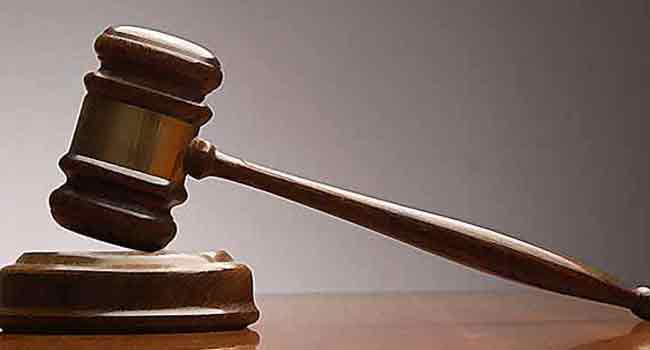
A Federal High Court sitting in Abuja has fixed April 25, 2018, for the judgement of the case filed by the Accord Party against the National Assembly.
The Party is challenging the powers of the National Assembly to amend the Electoral Act.
President Buhari had on March 13, 2018, written to the National Assembly to withhold assent to the amendment of the 2010 Electoral Act.
He said he was declining assent to the amendment of the Electoral Act because the amendment to the sequence of the election in section 25 of the Principal Act may infringe on the constitutionally guaranteed discretion of INEC to organise, undertake and supervise all elections provided in section 16(a) of the constitution.
He noted that the amendment to section 138 of the Principal Act to delete two crucial grounds upon which an election may be challenged by candidates unduly limits the right of candidates to a free and fair electoral review process.
President Buhari further stated that the amendment to section 152 (325) of the Principal Act may raise constitutional issues over the competence of the National Assembly to legislate over local government elections.
“Pursuant to Section 58 (4) of Constitution of the Federal Republic of Nigeria 1999 (as amended), I hereby convey to the Senate, my decision on (3rd March, 2018) to decline presidential assent to the Electoral (Ammendment) Bill 2018 recently passed by the National Assembly.
“Some of my reasons for withholding assent to the Bill include the following:
“The amendment to the sequence of the elections in section 25 of the Principal Act may infringe upon the constitutionally guaranteed discretion of the Independent National Electoral Commission to organize, undertake and supervise all elections provided in section 15 (a) of the third schedule of the constitution.
“The amendment to Section (138) of the Principal Act to delete two crucial grounds upon which an election may be challenged by candidates unduly limits the rights of candidates in elections to a free and fair electoral review process and the amendments to section 152 (3)-(5) of the Principal Act, may raise constitutional issues over the competence of the National Assembly to legislate over Local Government elections.
However, Justice Ahmed Mohammed fixed the judgement date after all the parties had adopted their written addresses.



